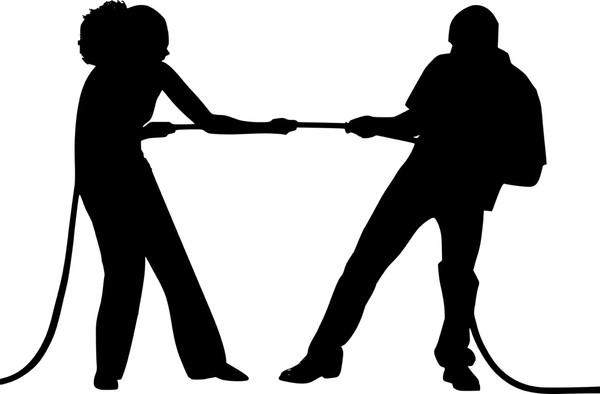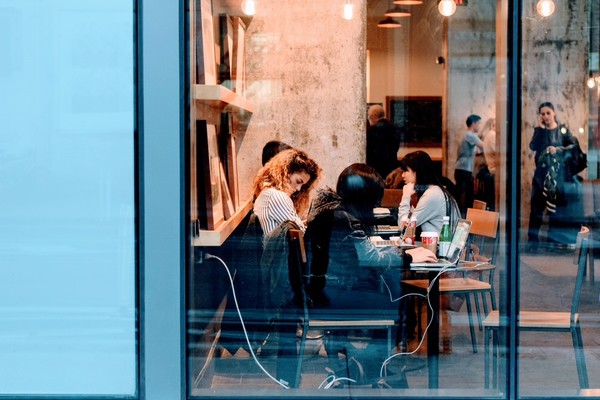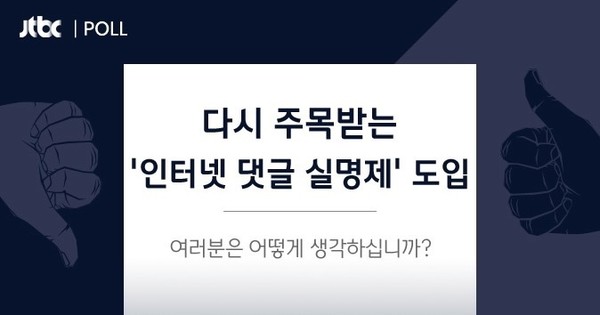
Stories in our life
"I didn't know because I’ve never seen the ‘Kagong tribe (=people who are studying in a cafe.)’..." This article is about the owner of a self-employed cafe who is suffering from severe damage due to the increase in the number of customers of Kagong. In this article, there are some comments which are written by people who opposed studying at the cafe.
But recently, many people, including college students and job seekers, are enjoying studying at cafes. This can mean that there are plenty of people who are in favor of studying at the cafe. I can see a lot of KNUE students studying at cafes near the school.
Also, the issue of the ‘online real-name system’, which has long been controversial, is an example of the topic of today’s article. Almost all of the comments we use on the Internet are anonymous. Have you ever been offended by malicious comments when you were doing internet community activities? When I see numerous comments on Internet articles and SNS, I often frown on violent content. Celebrities are frequently affected by malicious comments. But some people say writing any comment is their freedom of expression.
Like these, are ‘studying at a cafe’ and ‘anonymous comments’ our complete legitimate rights?
Issues related to rights and damage 1 Cafe study

We have the right, but others also have the right not to be harmed. So what do we do when these two rights collide? I brought up two issues. Let’s think about these two issues. The first issue is ‘cafe study’ mentioned in the introduction.
There are two main opinions on the ‘Kagong tribe’. "If you’re going to study, you should go to the library. Why do you come to the cafe?" or "What’s the problem when I’m going to study at the cafe with my own money?" We can easily see people going to ‘Kagong’. There are many reasons for studying at a cafe. This is because students who do not like the atmosphere where people are too quiet and sensitive, such as libraries and study rooms, want to study comfortably amid moderate white noise without any burden. In addition, they can eat various drinks and food at the cafe. Also there is an electrical outlet around the table, so they can easily charge their laptop, tablet PC, and smartphone while studying. If there is no library around them, (they can't find a suitable place to study), they may study at a cafe. Those who are in favor of studying at the cafe argue that it is their right to use the place where they buy drinks with their own money. In other words, preventing their behavior is the same as violating individual freedom.
From an opposing point of view, they think people who study at cafes are bad customers. This is because it can also be a nuisance to others. If a customer stays for a long time, the rotation rate of the store decreases. Also, the number of such customers(‘Kagong’ tribe) increases, creating a quiet atmosphere, which makes the atmosphere uncomfortable for customers who come to talk.
Some people say it’s okay to study at a cafe for 2-3 hours, while others say it's okay to study at a cafe if there are no people in the store. The standard that studying at a cafe is a nuisance is ambiguous. A cafe owner said, “Rather than having no customers in the cafe, it seems that customers come in when there are a few ‘Kagong people’. If they keep the manners of ordering one drink per person, it’s okay to have ‘Kagong people’ ”. Also, recently, there are cafes with places to study for the increasing number of ‘Kagong people’. What's your position?
Issues related to rights and damage 2 online real-name system

The ambiguity of these rights and damage conflicts can be found in many situations. The second issue is the online real-name system. First of all, the online real-name system is a system that allows users to post on the Internet bulletin board only when their real names and resident registration numbers are confirmed. Since July 2007, the ‘Restrictive identification system’ has been implemented only to media and portal sites with more than 200,000 to 300,000 daily visitors, but on August 23, 2012, the Constitutional Court ruled the online real-name system unconstitutional due to concerns over freedom of expression and basic rights. However, as malicious comments have become serious again recently, opinions have been raised that the introduction of the system should be reviewed and reflected. The issue of freedom associated with the online real-name system is about the basic right to privacy. The online real-name system can restrict privacy in that it forces the disclosure of personal information. There is an increasing possibility that the personal information of the bulletin board users will also be leaked or used wrongly.
There are also concerns that it could lead to restrictions on freedom of expression which could dampen almost all of the expression. According to the Constitutional Court, the legislative purpose of the online real-name system is to create a healthy Internet culture. However, when asked, "Is there any other way to prevent the spread of false information other than the self-verification method?" The answer is "Yes." There are several ways to prevent the spread of false information such as checking the tracking of Internet addresses, deleting information and taking temporary measures, and compensating for damages. In other words, the biggest reason why the Constitutional Court does not introduce the online real-name system is that there are excessive restrictions on basic rights necessary to achieve the purpose.
On the contrary, what are the opinions of those who support the online real-name system? Looking at the current situation, the number of online libel and insults filed with the police continues to increase every year. A poll conducted by pollster Realmeter on the Internet real-name system in 2021 found 69.5% in favor, 24% in opposition and 6.5% in others. Seven out of 10 adults are in favor.
The biggest reasons for favoring the online real-name system are defamation of various celebrities due to malicious comments, groundless comments and misinformation. The damage that we've seen so many times should not be allowed to happen anymore. It can also reduce the number of cases where the perpetrators hidden in anonymity cannot be found and punished. According to the 2015 Constitutional Court's decision, the online real-name system can be partially tolerated when someone posts information against candidates or political parties on bulletin boards on media websites during the election campaign. Looking at this, this system can be seen as effective in reducing the act of attacking and insulting someone.
Also, the online real-name system can encourage critical thinking. If you use anonymity to criticize any system or social problem, you are not responsible for your opinion, so there are many groundless and vulgar criticisms. However, if you use your real name, you will have to take responsibility for your comments. Also, if the real-name system spreads further, the Internet may not be flooded with strange texts.
What do you think?
What we need: consideration
Aside from these, issues related to freedom and damage are constantly occurring in our daily lives. The actions such as public displays of affection or smoking on the street, that are somewhere between personal freedom and the damage of others cause us to hesitate.
Thinking about it a little closer, we can know that we affect each other a lot, such as whether we can use a hair dryer in the morning or take a shower late at night in the dormitory, or make a typing sound in class. We live in a world where we live together. Before we present our rights, we should look at others’ rights and be considerate and compromised if our rights are not greatly violated. If our rights are greatly violated, we should take our rights. We need to think about whether the behavior that we usually claim to be our right is causing excessive damage to others.

